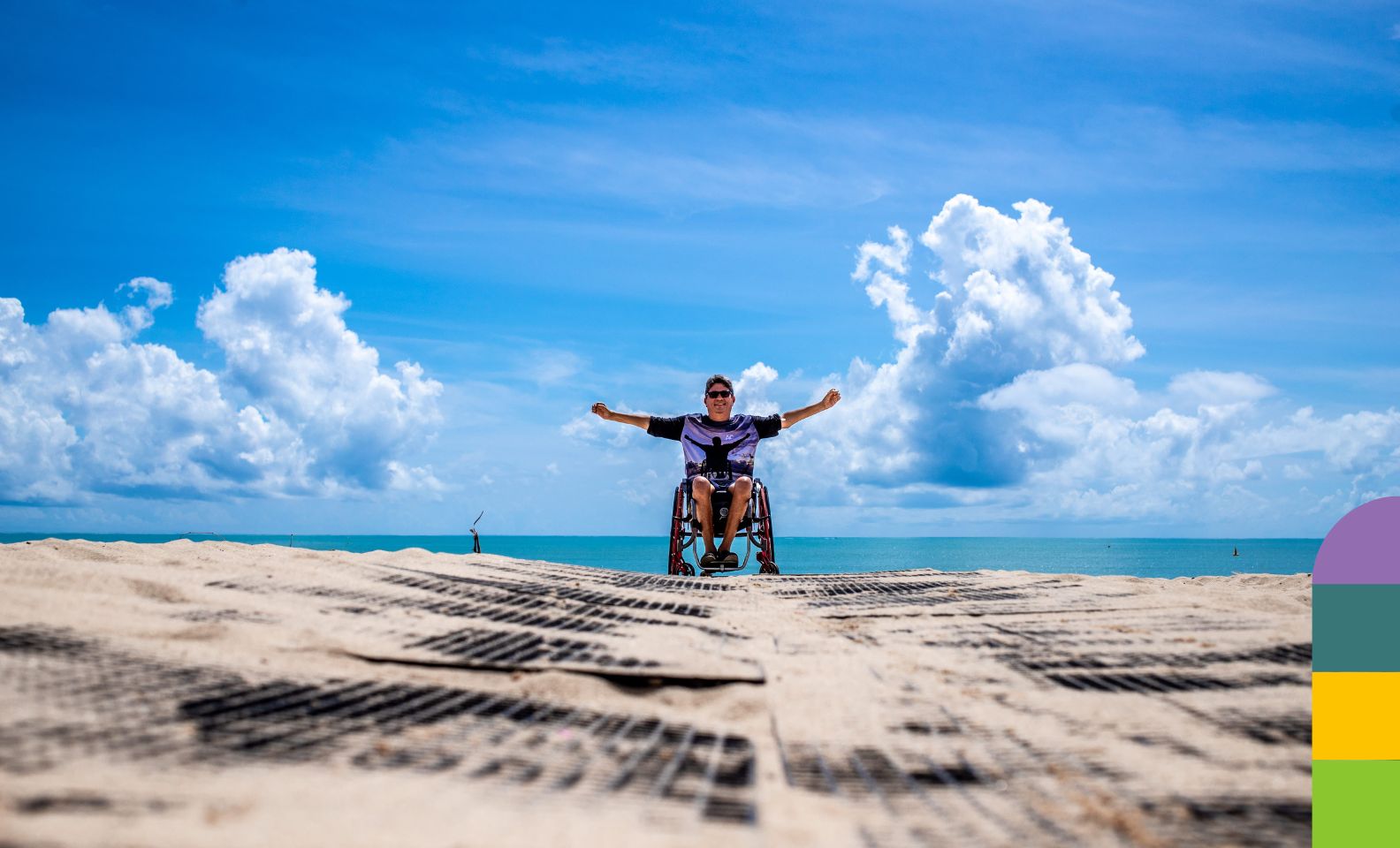Financial Help for Brain Injury
NDIS for patients after Brain Injury
Brain injury is a leading cause of disability and loss of life in Australia, with far-reaching impacts that extend beyond physical health. These injuries can bring significant long-term challenges affecting a person’s independence, personality, and relationships. Alongside the emotional and physical toll, the financial worry that accompanies a brain injury often becomes one of the most overwhelming challenges to those who find themselves in this situation.
Financial help after brain surgery can be life-changing. NDIS funding can provide access to essential therapies, assistive technologies, and personal care support, empowering participants to regain independence. This financial assistance can also help cover rehabilitation, home modifications, and social participation if needed.
The effects of brain injury can be long lasting, and they vary widely from person to person. However, with the proper support, rehabilitation, and adaptive strategies, many people with brain injuries can improve their quality of life and regain some level of independence.
What are the types of brain injury?
Brain injuries generally fall into two categories: traumatic brain injuries (TBI) and acquired brain injury (ABI). Each type has its own causes and effects on brain function, and tends to affect people differently.
Traumatic Brain Injury (TBI)
A TBI describes damage to the brain caused by an external force. They often result from falls, car accidents, or assault and can vary greatly in severity and type. For example a concussion is a milder form of TBI, often caused by a hit to the head. You might see symptoms such as dizziness, confusion, or headaches, but they’re usually temporary. On the other hand, a contusion refers to a bruise on the brain that can cause swelling and pressure.
In more severe cases like diffuse axonal injury (DAI), the brain shifts inside the skull, causing nerve fibres to tear, which can lead to lasting damage. Penetrating injuries occur when something pierces the skull, while hematomas involve blood pooling around the brain from ruptured blood vessels. These types of injuries can be more complex and may require long-term care and support.


Acquired brain injury (ABI)
An ABI, on the other hand, happens anytime after birth and is usually due to internal causes. A stroke is one of the most common types of ABI, where the brain’s blood supply is either blocked or there’s bleeding on the brain. Hypoxic or anoxic brain injuries occur when the brain doesn’t get enough oxygen, often from situations like near-drowning or a heart attack.
Other causes include infections like meningitis or encephalitis, which can inflame the brain and cause damage. Brain tumours, whether they’re cancerous or not, can press on brain tissue and affect its function. Exposure to toxins like carbon monoxide, lead, or certain drugs can also damage brain cells. And then there are Degenerative diseases, like Alzeimer’s or Parkinson’s, which progressively damage the brain over time.
What effects can brain injury have on day-to-day life?
A brain injury can profoundly impact a person’s day-to-day life, with effects varying depending on the severity, location and type of injury. Here are some of the common effects:
Cognitive effects
When it comes to cognitive effects, someone might struggle with memory, making it hard to remember events or retain new information. Focus, decision making, and organising simple daily tasks can become challenging. You might also notice speech and language difficulties, making communication harder, which can be frustrating for everyone involved.
Physical effects
Physically, the effects can be exhausting. Chronic pain, like headaches, and fatigue can make even simple tasks feel overwhelming. Some may experience mobility issues or seizures, and things like vision, hearing, or touch can change, affecting their overall independence.
Emotional and behavioural effects
Emotionally, it’s not uncommon to see mood swings, depression, or anxiety. Personality changes can happen too—someone might become more impulsive or withdrawn. Regulating emotions can become difficult, leading to frustration, outbursts or even apathy, which can strain relationships.
Daily living challenges
Everyday tasks like cooking, cleaning, and self-care may start to feel too much. Financial stress often adds to the challenge, especially if income is reduced due to the injury. Losing the ability to drive or manage transportation can also increase dependence on others, which can be tough to cope with.
Work and education
For work or school, the injury might mean needing special accommodation. Work capacity may decrease, or students might struggle to keep up with tasks and learning. It often requires some flexibility—things like assistive devices, lighter workloads or adjusted schedules can help.

Financial assistance for brain injury patients
National Disability Insurance Scheme (NDIS)
If you or a loved one has sustained a brain injury resulting in a long-term and significant disability, you may be eligible for financial help through the National Disability Insurance Scheme. The NDIS offers funding and support for people living with brain injuries to help them live more independently and participate in the community. To receive NDIS support, you will need to meet the eligibility criteria, which includes having a permanent disability that substantially impacts daily living activities. An NDIS assessment will then help you to determine the level of support needed based on the severity and impact of the brain injury.
Disability Support Pension (DSP)
The DSP is available for people in Australia who are unable to work due to their brain injury. This ongoing payment helps to cover living expenses for people with a permanent disability that significantly impacts their ability to earn an income. Eligibility is based on medical assessments and financial criteria.
Carer Payments and Allowances
For families and caregivers of people with brain injuries, financial support is available through:
- Carer Payment – financial support for people who cannot work because they are caring for someone with a severe disability.
- Carer Allowance – A supplementary payment to help cover the costs of caring for someone with a disability.
Compensation and Insurance
In cases where a brain injury is the result of an accident, you may be entitled to compensation through:
- Workers’ compensation – if injured while working, available through state-based workers’ compensation schemes.
- Public Liability or Personal Injury Claims – If the injury was caused by another party’s negligence, you may be able to pursue compensation through legal channels.
How can NDIS funding help with Brain Injury?
- Therapies and rehabilitation such as speech therapy to assist with communication difficulties, occupational therapy to improve daily living skills, physiotherapy to help with mobility, and psychology services to address emotional and behavioural challenges.
- Assistive technologies such as mobility aids, communication devices for those with speech difficulties, and home modifications to make homes more accessible.
- Personal care support for those needing assistance with daily activities, personal support workers can help with tasks such as dressing, cooking, medication management and personal hygiene.
- Supported independent living (SIL) for those requiring ongoing assistance but wish to live independently. SIL services provide help with daily tasks and ensure participants can live as autonomously as possible while receiving the care they need.
- Community participation and support to help participants engage in social and community activities to build social skills and develop meaningful relationships.
- Plan management and coordination to help with managing NDIS plans and coordinating funds and supports, ensuring participants receive the right supports in line with their NDIS plan.
- Vocational and educational support can help participants return to work or education by funding specialised training, workplace accommodations, or educational assistance. This support promotes personal and professional development.
How can Maple help with brain injury?
The National Disability Insurance Scheme (NDIS) can provide financial support for people with a brain injury and Maple can assist you with this.
The journey to brain injury recovery can be complex, and the effects can deeply touch every aspect of life, creating challenges for both those affected and their loved ones. Compassionate support and understanding are essential in helping those impacted rebuild their lives but financial help is also crucial for funding this support.
At Maple, we specialise in supporting our clients with brain injuries by coordinating the essential services they need for recovery and regaining independence.
From guiding you through the funding application process to connecting you with therapies and personal care, we ensure you have access to the highest quality support.
What sets us apart is our commitment to personalised care and exceptional service. We can manage your NDIS plan efficiently, making sure your funds are used effectively, while delivering compassionate, tailored services that empower you to live independently and achieve your goals.,/p>
With Maple, you’re not just receiving care; you’re receiving care designed around you.
Reach out to our team today to find out more about partnering with Maple for brain injuries.

The Maple Commitment
Enquire Today
Whether its a query about the services we provide, or just a general enquiry, we would love to hear from you!



